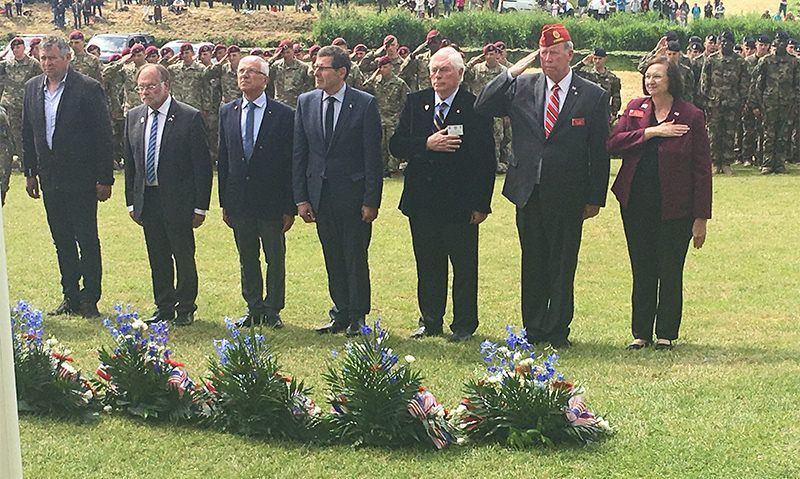
Roosevelt's permanent impact on the US
 View Photo Gallery
View Photo Gallery
In what has become an annual tradition, the leader of the nation's largest veterans organization spoke before a crowd of international military dignitaries and supporters Sunday at the foot of the Iron Mike Memorial at La Fiere Bridge in Normandy, France.
"Among those who came ashore at Utah Beach in the first wave on June 6, 1944 was a 56-year-old brigadier general who had to be among the front-line soldiers of the invasion," American Legion National Commander Brett P. Reistad said, recalling D-Day. "He received the Medal of Honor for his actions that day. He died of a heart attack five weeks later and was buried at St. Mere Eglise. But after a previous war, in 1919, Theodore Roosevelt Jr., made a permanent impact on the United States by helping create The American Legion.
Prior to the ceremony, thousands of people from Europe and the United States watched more than 1,400 military and civilian parachutists land in a nearby drop zone. Most of the jumpers were current members of the 82nd Airborne Division.
Among those observing was World War II veteran Warren Goss, a machine gunner who stormed Utah Beach on the same day as Roosevelt.
"After the invasion, I slept in the woods, in foxholes and even in a pile of manure one time," Goss recalled. "And it was so cold."
Although the 75th anniversary of the successful landing at Normandy was the reason for the festivities, Goss was quick to give credit to later generations of veterans. "Vietnam veterans got raw deals," he said. "The government should have been ashamed about how they were treated. They did the same thing we did and didn't get credit for it."
